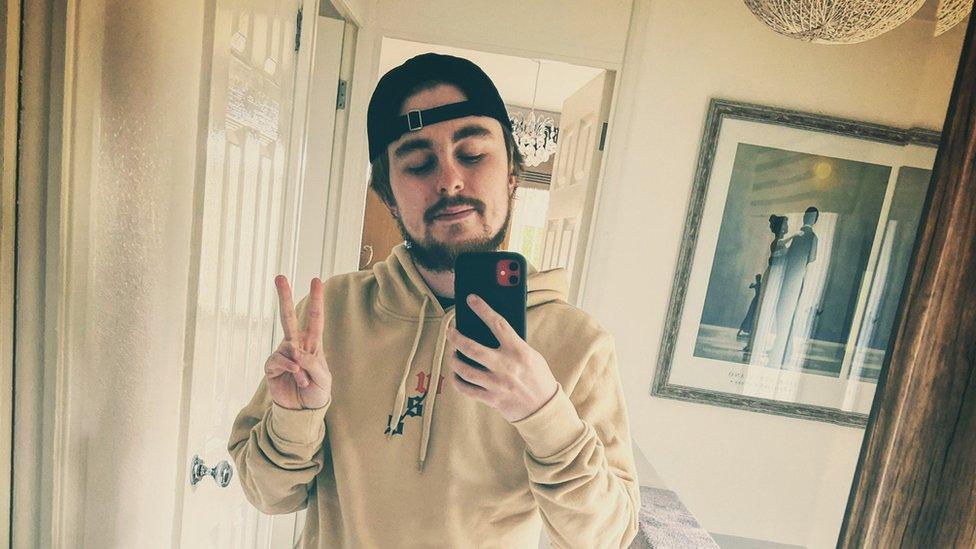Why touring bands struggle to make money on merchandise
- Published
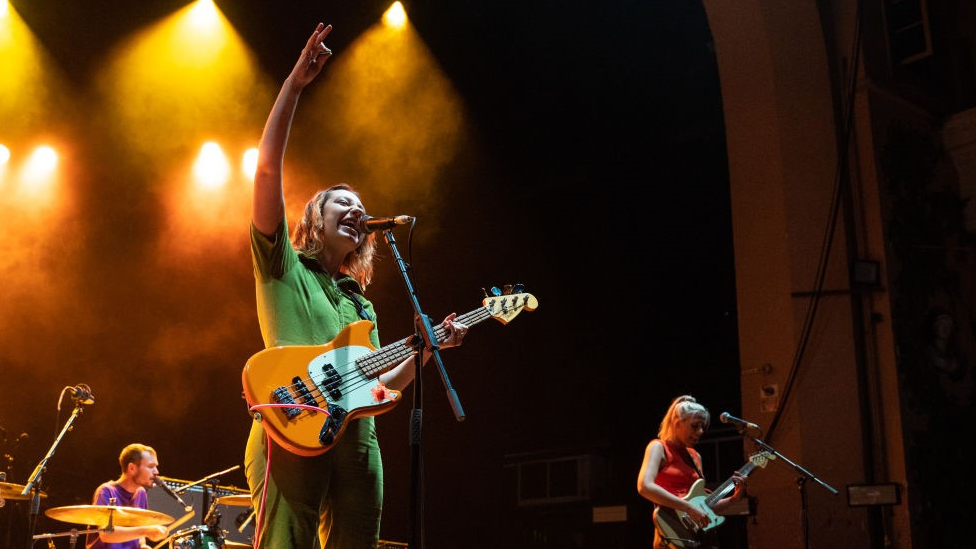
Isle of Wight band Coach Party "rely on every penny" of merchandise sales
Buying a branded T-shirt, hat or poster at a gig might feel like a great way to support your favourite bands and artists, but many struggle to actually make any money out of it.
As soon as Isle of Wight indie band Coach Party finish a gig, they run over to their merchandise stand and start trying to sell T-shirts.
If they don't run the stand themselves, they'll have to pay someone else to do it. And when they've already spent £8 on the costs of making a £20 T-shirt, you can see why they're keen to cut corners to make the most profit possible.
"It's really hard to make money out here as a musician," singer and bassist Jess Eastwood tells Newsbeat.
"You've got so much cost behind you - with producing records, fuel to get around the country, hotels to stay in, van hire - you'll be lucky to break even."
Bands and industry figures have told Newsbeat that some venues take up to 20% of merchandise sales.
Others have deals with concession companies that run the merchandise stands and take up to 25% - "whether you want [the service] or not," says Jess.
She says this can be "a bit of a blow" on tour when "we rely on every penny we get".
The commission charge was recently criticised by The Charlatans' Tim Burgess, who says smaller bands "need merch income to survive".
Allow X content?
This article contains content provided by X. We ask for your permission before anything is loaded, as they may be using cookies and other technologies. You may want to read X’s cookie policy, external and privacy policy, external before accepting. To view this content choose ‘accept and continue’.

In response, some venues are changing their policies.
"We would never intend for emerging artists to be subsidising a venue like us," says Helen Jewel from the Old Market in Brighton.
'Without artists, we are nothing'
Until recently, the venue charged a percentage or a fee to acts selling merchandise there, but "we listened to the artists that were raising this issue," Helen says.
Venues and musicians alike have suffered during Covid, with the Music Venue Trust recently warning that its members are currently losing £2m a week.
"Every single penny absolutely matters right now," says Helen.
"But without artists we are nothing, so we have to look at the right places for trying to get this much-needed income."
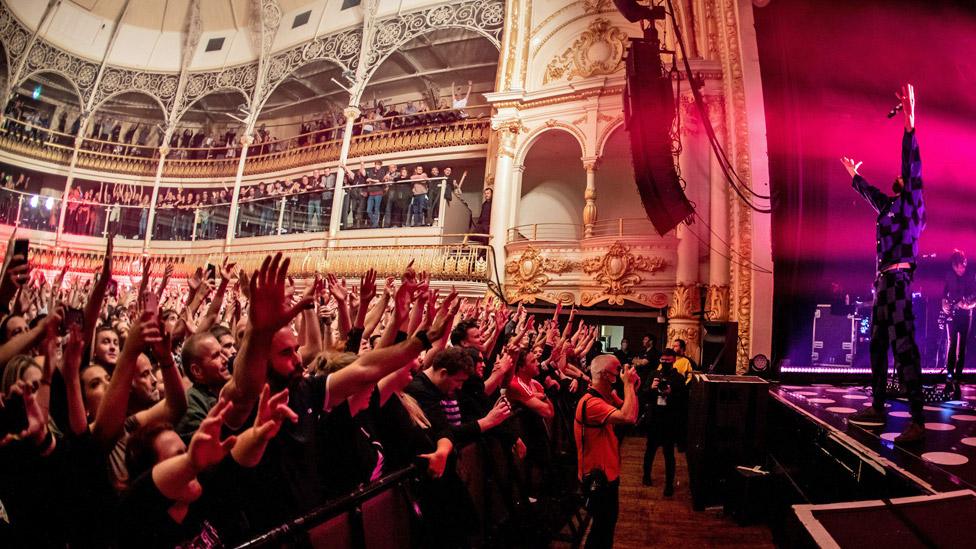
English gig venues have been open without social distancing since July, but have recently been hit by a "catastrophic" fall in attendances, according the Music Venue Trust
Music merchandise is increasingly big business: the global market was reportedly worth $3.5bn (£2.6bn) in 2018, external, up from $3.33bn (£2.52bn) in 2017 and $3.08bn (£2.33bn) in 2016.
So some bands are finding creative ways of getting round the venue charges.
Sheffield quintet While She Sleeps are planning to host their own "merch market" in a warehouse before a hometown show later this month, inviting other bands to join them.
"We saw this as an opportunity to get fans to come down, say hello during the day and buy merch from there," guitarist Mat Welsh tells Newsbeat.
"We obviously don't take any commission, so the bands are keeping 100% profit."
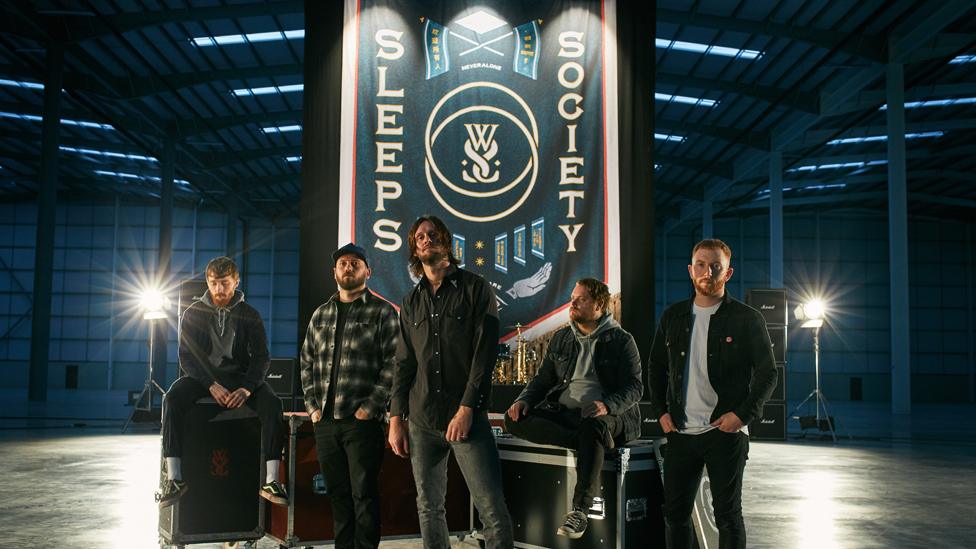
While She Sleeps are planning to host their own "merch market" in a warehouse to earn more profit
The other way the metal group are getting round commission charges is to tour venues that don't take a cut.
"We realised a good way to do it - play two or three nights in a small venue that doesn't take a commission in comparison to one night in a venue that does."
Mike Keegan, a tour manager who has worked with artists including Rag'n'Bone Man, says the commission charge does work in certain venues, though.
"In arenas and stadiums, it would be almost impossible for a merchandise manager to run shows of that size themselves without a concession company - so they do have a place in our industry," says Mike.
"But the system needs redressing - the fees are too high, and some control needs to go back to the artists as to whether they use these companies or not."


Follow Newsbeat on Instagram, external, Facebook, external, Twitter, external and YouTube, external.
Listen to Newsbeat live at 12:45 and 17:45 weekdays - or listen back here.
- Published15 July 2021
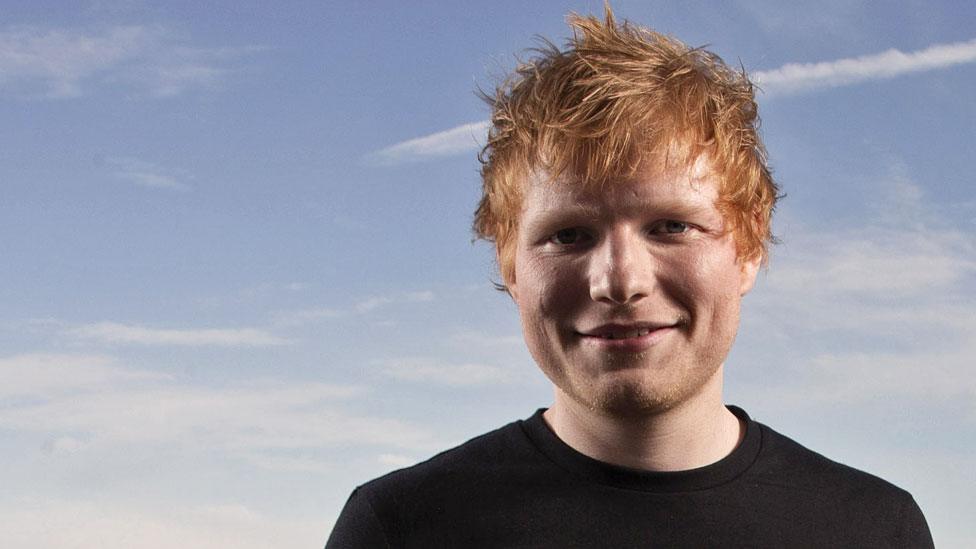
- Published23 November 2021

- Published19 October 2021
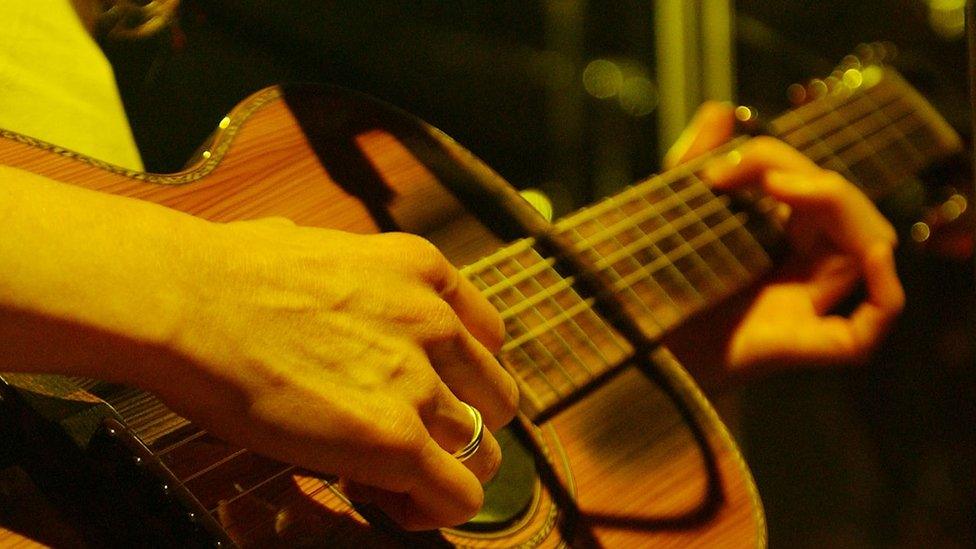
- Published15 December 2021
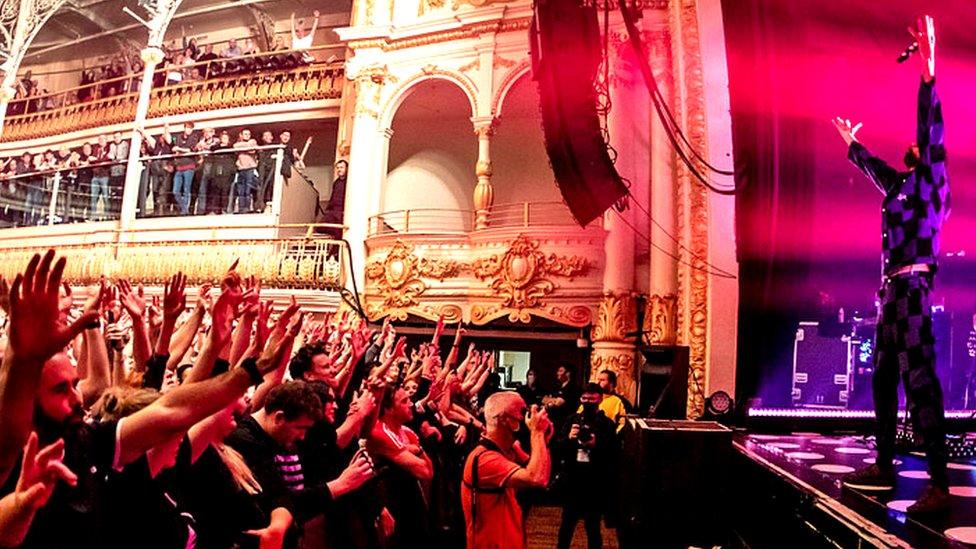
- Published6 May 2021
